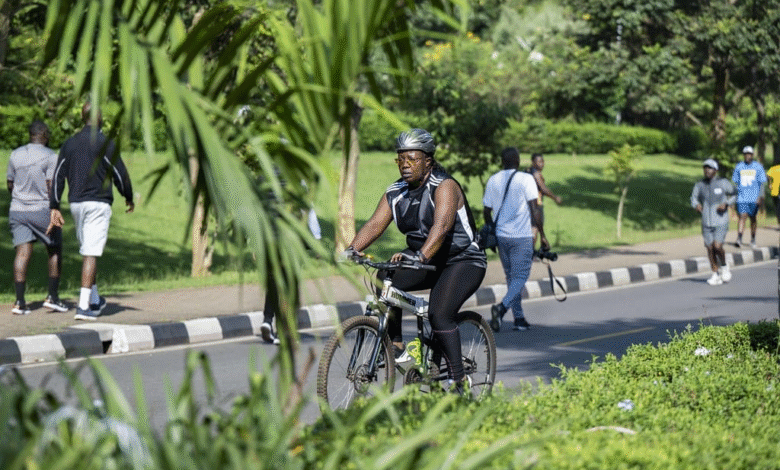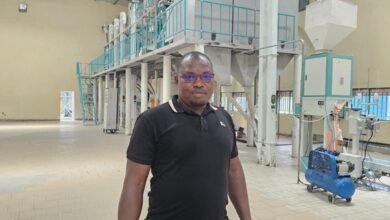Focus : Kigali, green transport for a green city
Electric buses, emission-free motorcycles, smart infrastructures: the capital of Rwanda is accelerating its transition towards sustainable transport. With players like BasiGo and support from international donors, Kigali is establishing itself as an African model of ecological innovation serving its citizens.

As an exemplary capital, Kigali is positioning itself as the African showcase for integrated sustainable mobility. With its electric buses (in partnership with BasiGo), bike lanes, pedestrianization plan for the city center, and full digitization of transport tickets, the city offers a vision of the future African urban landscape. The “Smart Kigali” project, supported by the World Bank and the private sector, combines urban planning, digital technology, and clean transport.
According to Kigali’s mayor, Samuel Dusengiyumva, “Our ambition is to become a green city at all levels, from mobility to energy, and to show that an African capital can be at the forefront of sustainable innovation.”
In Kigali, mobility is being reinvented. In this fast-growing capital, where over 1.7 million inhabitants commute daily, thermal engines are gradually giving way to electricity. In 2025, Rwanda will take another step in its ecological transition with the arrival of 100 electric buses delivered by the Kenyan company BasiGo, 28 of which have already been received between April and May.
Our ambition is to become a green city at all levels, from mobility to energy, and to show that an African capital can be at the forefront of sustainable innovation
These silent vehicles, capable of traveling up to 300 kilometers per charge, will serve the city’s main roads. “We have already recorded 361 pre-orders, which shows a real market appetite for clean mobility,” said Jit Bhattacharya, CEO of BasiGo. To support this deployment, a 1 MW charging depot is being developed at Rwandex, with several others planned across the territory.

The Rwandan government has implemented concrete measures to support this transition. Among them: the removal of VAT on electric vehicles, reduction of import duties, and subsidies for converting thermal motorcycles. The goal is clear: to achieve a 38% reduction in greenhouse gas emissions by 2030, in line with Rwanda’s climate commitments.
President Paul Kagame has often stated that “Protecting the environment is not a luxury but a necessity for Africa’s sustainable development.” Kigali is today a concrete illustration of this.
A more accessible, inclusive, and resilient city

The African Development Bank (AfDB) has provided decisive support to this transition. On December 2, 2024, it approved a $100 million loan to modernize Kigali’s transport infrastructure. This funding will enable the construction of bus-only lanes, secure sidewalks, and bike paths. “Our goal is to build a more accessible, inclusive, and resilient city,” emphasized Kigali’s mayor, Samuel Dusengiyumva.
According to the AfDB, the project could reduce travel times by 30% during peak hours while creating more than 3,000 direct and indirect jobs in the green mobility and infrastructure sectors.
Kigali, an African laboratory for sustainable cities
The Rwandan vision goes beyond just the technological framework. It is an integrated model where public policies, private investments, and social innovation converge. The Ministry of Infrastructure set up a national electric mobility strategy in 2021, aiming to electrify 30% of the country’s vehicle fleet by 2030.
The city has already experimented with the introduction of electric minibuses, showing positive results in operating costs and user acceptance. “It’s quiet, clean, and there’s even Wi-Fi on board,” testifies Aminata, a student at the University of Rwanda.
Rwanda also benefits from a clear regulatory framework, efficient administration, and strong international partnerships, notably with the World Bank, the German GIZ, and local green tech startups.
Toward a sustainable urban Africa
Kigali’s example is setting a precedent across the continent. Other African capitals like Nairobi, Accra, and Dakar are closely watching the evolution of the Rwandan model. The challenge is immense: according to the UN, Africa’s urban population will double by 2050. To avoid exploding pollution and congestion, Africa must invent a new mobility.
Kigali, through its bold choices, offers a path. An electric path, but also a social, innovative, and inclusive one. And if the future of the African city is being shaped here, on the hills of Kigali?






